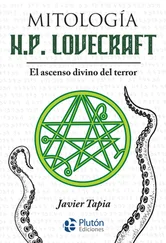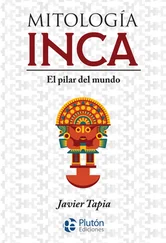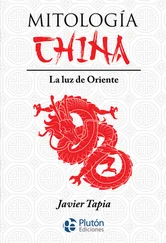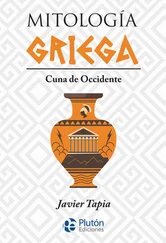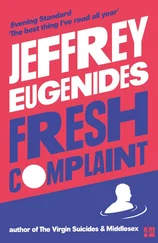My grandfather, trying to be of help, drove off one day and returned with a stack of fifty plates.
“I already ordered plates,” said Milton. “From a restaurant supply place. They’re only charging us 10 percent down.”
“You don’t want these?” Lefty looked disappointed. “Okay. I’ll take them back.”
“Hey, Pop,” his son called after him. “Why don’t you take the day off? I can handle things here.”
“You don’t need help?”
“Go home. Have Ma make you lunch.”
Lefty did as he was told. But as he drove down West Grand Boulevard, feeling unneeded, he passed Rubsamen Medical Supply—a store with dirty windows and a neon sign that blinked even in the day—and felt the stirrings of old temptation.
The following Monday, Milton opened the new diner. He opened it at six in the morning, with a newly hired staff of two, Eleni Papanikolas, in a waitress uniform purchased at her own expense, and her husband, Jimmy, as short-order cook. “Remember, Eleni, you mostly work for tips,” Milton pep-talked. “So smile.”
“At who?” asked Eleni. For despite the red carnations in bud vases gracing each booth, despite the zebra-striped menus, matchbooks, and napkins, the Zebra Room itself was empty.
“Smartass,” Milton said, grinning. Eleni’s ribbing didn’t bother him. He’d worked it all out. He’d found a need and filled it.
In the interest of time, I offer you now a stock capitalist montage. We see Milton greeting his first customers. We see Eleni serving them scrambled eggs. We see Milton and Eleni standing back, biting their lips. But now the customers are smiling and nodding! Eleni runs to refill their coffee. Next Milton, in different clothes, is greeting more customers; and Jimmy the cook is cracking eggs one-handed; and Lefty is looking left out. “Give me two fried whiskey down!” Milton shouts, showing off his new lingo. “Dry white, 68, hold the ice!” Close-up of the cash register ringing open and closed; of Milton’s hands counting money; of Lefty putting on his hat and leaving unnoticed. Then more eggs; eggs being cracked, fried, flipped, and scrambled; eggs arriving in cartons through the back door and coming out on plates through the front hatch; fluffy heaps of scrambled eggs in gleaming yellow Technicolor; and the cash register banging open again; and money piling up. Until, finally, we see Milton and Tessie, dressed in their best, following a real estate agent through a big house.
The neighborhood of Indian Village lay just twelve blocks west of Hurlbut, but it was a different world altogether. The four grand streets of Burns, Iroquois, Seminole, and Adams (even in Indian Village the White Man had taken half the names) were lined with stately houses built in eclectic styles. Red-brick Georgian rose next to English Tudor, which gave onto French Provincial. The houses in Indian Village had big yards, important walkways, picturesquely oxidizing cupolas, lawn jockeys (whose days were numbered), and burglar alarms (whose popularity was only just beginning). My grandfather remained silent, however, as he toured his son’s impressive new home. “How do you like the size of this living room?” Milton was asking him. “Here, sit down. Make yourself comfortable. Tessie and I want you and Ma to feel like this is your house, too. Now that you’re retired—“
“What do you mean retired?”
“Okay, semiretired. Now that you can take it a little bit easy, you’ll be able to do all the things you always wanted to do. Look, in here’s the library. You want to come over and work on your translations, you can do it right here. How about that table? Big enough for you? And the shelves are built right into the wall.”
Pushed out of the daily operations at the Zebra Room, my grandfather began to spend his days driving around the city. He drove downtown to the Public Library to read the foreign newspapers. Afterward, he stopped to play backgammon at a coffee house in Greektown. At fifty-four, Lefty Stephanides was still in good shape. He walked three miles a day for exercise. He ate sensibly and had less of a belly than his son. Nevertheless, time was making its inevitable depredations. Lefty had to wear bifocals now. He had a touch of bursitis in his shoulder. His clothes had gone out of style, so that he looked like an extra in a gangster movie. One day, appraising himself with severity in the bathroom mirror, Lefty realized that he had become one of those older men who slicked their hair back in allegiance to an era no one could remember. Depressed by this fact, Lefty gathered up his books. He drove over to Seminole, intending to use the library, but when he got to the house he kept on going. With a wild look in his eyes, he headed instead for Rubsamen Medical Supply.
Once you’ve visited the underworld, you never forget the way back. Forever after, you’re able to spot the red light in the upstairs window or the champagne glass on the door that doesn’t open until midnight. For years now, driving past Rubsamen Medical Supply, my grandfather had noticed the unchanging window display of hernia truss, neck brace, and crutches. He’d seen the desperate, crazily hopeful faces of the Negro men and women who went in and out without buying a thing. My grandfather recognized that desperation and knew that now, in his forced retirement, this was the place for him. Roulette wheels spun behind Lefty’s eyes as he sped toward the West Side. The clicking of backgammon dice filled his ears as he pressed the accelerator. His blood grew hot with an old excitement, a quickening of the pulse he hadn’t felt since descending the mountain to explore the back streets of Bursa. He parked at the curb and hurried inside. He walked past the startled customers (who weren’t used to seeing white people); he strode past the props of aspirin bottles, corn plasters, and laxatives, and went up to the pharmacist’s window in the rear.
“Can I help you?” the pharmacist asked.
“Twenty-two,” said Lefty.
“You got it.”
Trying to reclaim the drama of his gambling days, my grandfather started playing the West Side numbers. He started small. Little bets of two or three dollars. After a few weeks, to recoup his losses, he went up to ten bucks. Every day he wagered a piece of the new profits from the restaurant. One day he won and so went double or nothing the next, and lost. Amid hot-water bottles and enema bags, he placed his bets. Surrounded by cough medicine and cold sore ointment, he started playing a “gig,” meaning three numbers at once. As they had in Bursa, his pockets filled up with scraps of paper. He wrote out lists of the numbers he played along with the dates, so as not to repeat any. He played Milton’s birthday, Desdemona’s birthday, the date of Greek Independence minus the last digit, the year of the burning of Smyrna. Desdemona, finding the scraps in the wash, thought they had to do with the new restaurant. “My husband the millionaire,” she said, dreaming of Florida retirement.
For the first time ever, Lefty consulted Desdemona’s dream book, in the hope of calculating a winning number on the abacus of his unconscious. He became alert to the integers that appeared in his dreams. Many of the Negroes who frequented Rubsamen’s Medical Supply noticed my grandfather’s preoccupation with the dream book, and after he won for two weeks in a row, word spread. This led to the only contribution Greeks have ever made to African American culture (aside from the wearing of gold medallions) as the blacks of Detroit began to buy dream books themselves. The Atlantis Publishing Company translated the books into English and shipped them to major cities all over America. For a short time elderly colored women began to hold the same superstitions my grandmother did, believing, for instance, that a running rabbit meant you were coming into money or that a black bird on a telephone line augured that somebody was about to die.
Читать дальше
Конец ознакомительного отрывка
Купить книгу


